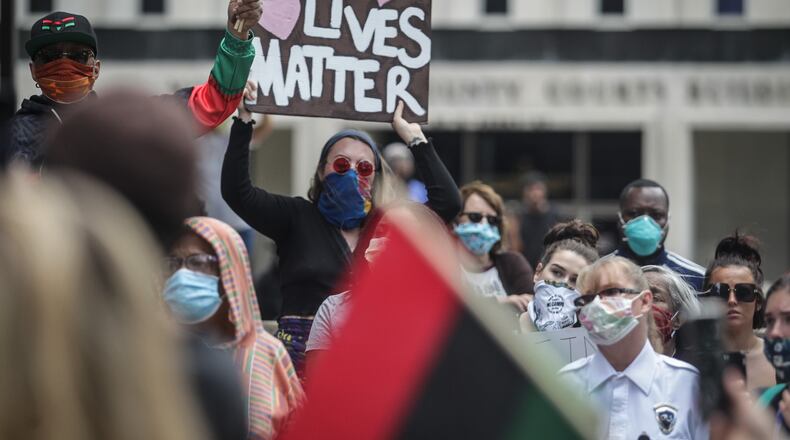First, we must make sure this history is known and preserved.
We cannot shy away from these past realities as they help us understand the present: Why African Americans are concentrated in West Dayton; why Black Daytonians are disproportionately likely to experience poverty and poor health outcomes; why economic mobility is much higher in the region’s predominately white suburbs.
“None of this will be easy — and will require us to continue to sit with uncomfortable truths."
It was not primarily the individual decisions of Black or white Daytonians that led to this situation — it was government-sanctioned policy that created the segregated region we live in today.
We can only make good decisions about how to have a better future if we understand what created our current disparities. And if we want to create a more equitable city and region, we must empower Black leadership to guide those decisions.
That has been the guiding principle in the city of Dayton’s police reform work, led by Roots of Racism contributor and Dayton Board of Education member Will Smith.
Dayton’s effort is comprised of five working groups, each of which is tasked with one critical area of policing policy. Over 100 community members participate in the working groups alongside Dayton Police, and they represent all walks of life — community activists, clergy, neighborhood association members, retired law enforcement, public defenders, and everyday people who volunteered to make their city better.
Perhaps most importantly — the community members at the tables are majority African-American, making it the most inclusive policy process that I’ve experienced in my time on the Dayton City Commission.
I believe this process will change how city government relates to our community.
Through this citizen-led process, we are creating a new model for how the city of Dayton can learn from and empower impacted residents in policy-making so we can take on big challenges in other areas as well.
The Roots of Racism series must also be a call to action for our entire region. Yes, Dayton bears responsibility for our past. The history described in the series shows that our suburban neighbors bear this responsibility as well, and we saw growing recognition of that in the protests and other signs of support for Black lives throughout the region this summer.
While the symptoms of racism are most visible in Dayton — the underlying condition, and, I believe, the cure — are shared throughout Montgomery County. We must work together to combat racism and promote equity throughout our region — especially in places that benefited from our legacy of housing discrimination.
Exploring the Roots of Racism is just the first step toward righting these historic wrongs. We must work to preserve this history, engage regional leaders and empower Black residents to shape their local governments.
None of this will be easy — and will require us to continue to sit with uncomfortable truths. But if I have learned anything about our community over the past two years, it is that we are resilient. And acknowledging and working to right the wrongs of this legacy will surely make our city, and our region, even stronger.
Nan Whaley is the mayor of Dayton.
About the Author

